| DMH Spotlight - Catching up with Michael Ansara, 46 years ago to today | Back |
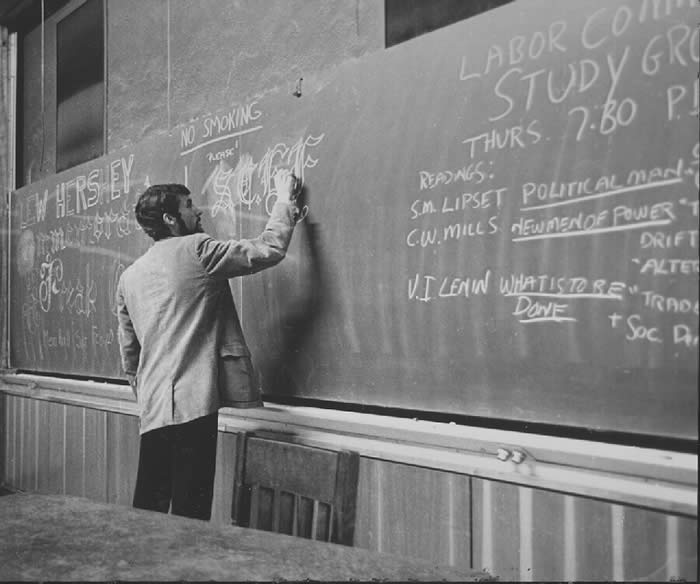
Who are these young people? We would love to meet them again, now, too....Email us now!
NB: Michael Ansara confirms that the man above is not Michael Ansara. But see the fascinating interview with Ansara,at the end of this page, and his press release for SDS just below.
Photographs all Copyright © 1968 Diana Mara Henry Please contact us for permission to use.
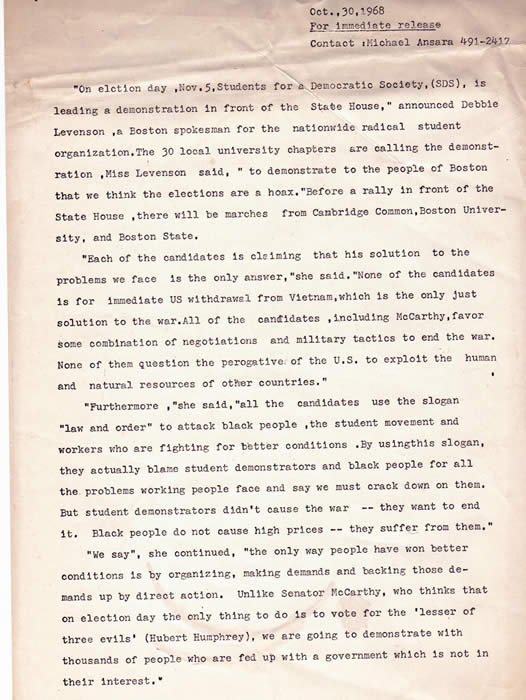
We have hours of tape of the SDS meeting photographed at the top of the page.
They are part of the Diana Mara Henry archive at the Du Bois LIbrary:
http://www.library.umass.edu/spcoll/umarmot/?s=Diana+Mara+Henry&go=Find
http://www.credo.library.umass.edu/cgi-bin/search.pl?q=diana+mara+henry&x=0&y=0
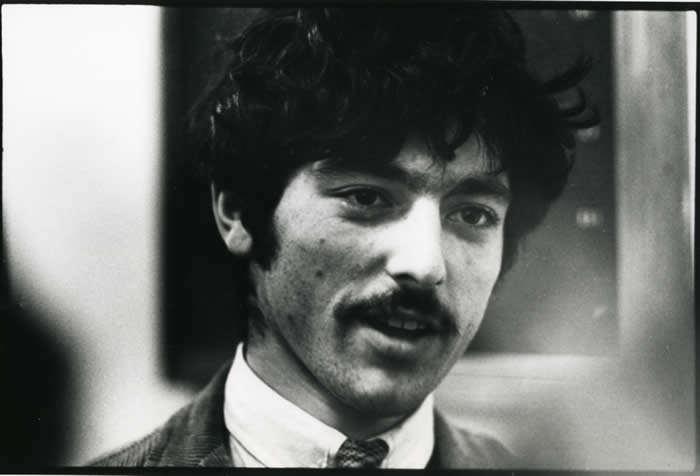
Robert Gass
“Still crazy after all these years, and still working for justice with the Social Transformational project” www.stproject.org
Thank you, Robert!
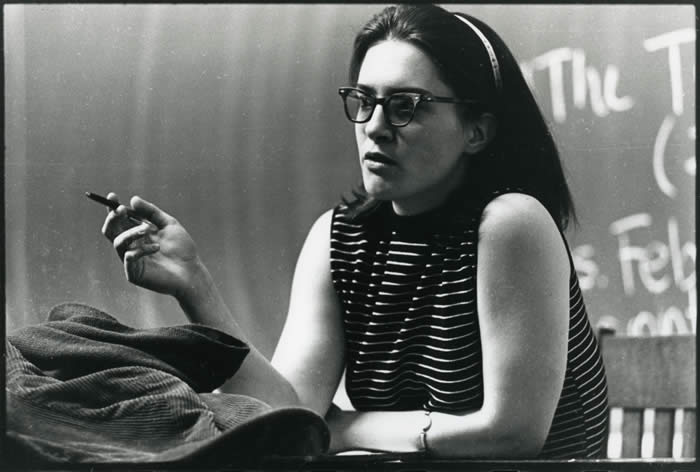
Also see a fascinating collection of SDS history at
http://digital.library.wisc.edu/1711.dl/wiarchives.uw-whs-mss00177
Archival Location:
Abstract:
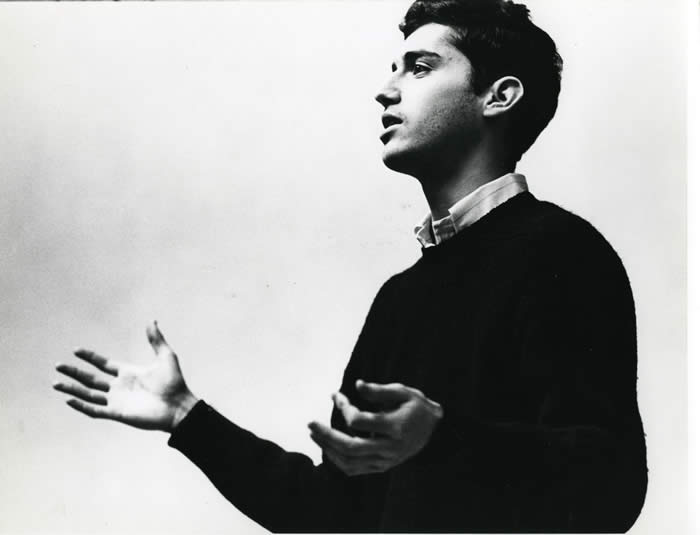
Jonathan Harris, below:
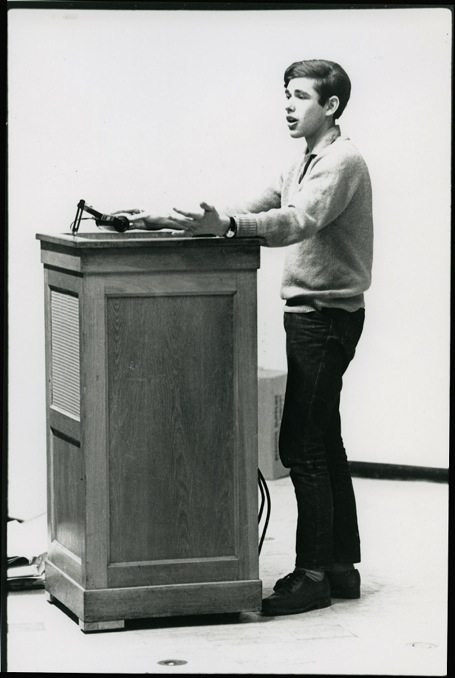
We are checking....
Is he Author of Summer of Love: Psychedelic Art, Social Crisis and Counterculture in the 1960s
Is he Now Professor Jonathan Harris
Professor in Global Art & Design Studies and Director of Research at
Winchester Centre for Global Futures in Art Design & Media (WSA)
http://www.southampton.ac.uk/wrc/about/members/jonathan_harris.page
Jonathan Harris, PhD, is Professor in Global Art & Design Studies and Director of Research at WSA. He is one of the inaugural professors in the Winchester Centre for Global Futures in Art Design and Media. He is author and editor of sixteen books and over a hundred journal essays. His books include Art in Modern Culture (Phaidon, 1992), Modernism in Dispute: Art Since the Forties (Yale University Press, 1993), Federal Art and National Culture: The Politics of Identity in New Deal Art (Cambridge University Press, 1995), The New Art History: A Critical Introduction (Routledge, 2001), Writing Back to Modern Art: After Greenberg, Fried, and Clark (Routledge, 2005), Art History: The Key Concepts (Routledge, 2006), Identity Theft: The Cultural Colonization of Contemporary Art (Tate Liverpool/Liverpool University Press 2008), Inside the Death-Drive: Excess and Apocalypse in the World of the Chapman Brothers (Tate Liverpool/Liverpool University Press, 2010: sole editor), Regenerating Culture and Society: Architecture, Art and Urban Style within the Global Politics of City Branding (Tate Liverpool/Liverpool University Press, 2011: co-editor) and, most recently, Globalization and Contemporary Art (Wiley Blackwell USA, 2011).
Jonathan Harris’s next book will be The Utopian Globalists: Artists of Worldwide Revolution, 1919-2009, due from Wiley Blackwell in 2012. He is also editing a book on Picasso’s work when a member of the French Communist Party after 1944, and its significance for subsequent art and artists. With Jean Marc Poinsot, University of Rhennes, he is editor of The International Anthology of Art Criticism, from 1950-2011 to be published on behalf of the International Association of Art Critics. With Rasheed Araeen he is preparing The Full Story, the sequel to Araeen’s The Other Story (1989) on the place of Asian and African artists in British art since 1945.
Photographs all Copyright © 1968 Diana Mara Henry Please contact us for permission to use.
Whose Words These Are (13): Michael Ansara
http://radioopensource.org/whose-words-these-are-13-michael-ansara/
CLICK TO LISTEN TO CHRIS’S CONVERSATION WITH MICHAEL ANSARA. (43 MINUTES, 20 MB MP3)
Michael Ansara stands for the poet lurking in every one of us, and in this conversation he instructs us — revision by revision — how to liberate our inner Wordsworth. Once upon a Sixties time, Michael Ansara was a famous radical. When the boss of the Vietnam war, Robert McNamara was engulfed by hostile Harvard students in October, 1966, Michael Ansara at the head of SDS was ringleading the rebels. He followed his principles into a stormy career of political and union organizing, and he’s a ringleader still, of the second-annual Massachusetts Poetry Festival in Lowell this weekend. It turns out now he was reading serious poetry all his life and in his fifties decided to write some. In a poem titled “19 Weeks,” for example, he’s reflecting on an ultrasound picture of a grandchild in his daughter’s womb; and then he explains to you and me how he worked through Shakespeare and the Thesaurus and 50 or 60 rewrites before he felt he’d given birth to a poem.
Q: Who is your favorite fictional character of all time?
A: I would say, if I were being truthful, the protagonist whose name I cannot remember for you from The Big Sky by A. B. Guthrie.
Have you ever read that book? It is about mountain men in the 1840s. I think I have read it eight times.
Q: Who do you think of, Michael, as kind of a doppelganger out there? Who does the work of your inner man in some other medium?
A: I have always thought of Bruce Springsteen as a Walt Whitman of our time. I think it would be way too presumptuous but would I aspire to having Bruce as my doppelganger? You bet. And not just because of the crowds, but because of the music of his lyrics as well as his melodies. He tries hard to sing of America: of its people, its place, its soul, its torments, its virtues.
Q: Think of a talent you’d love to have and don’t, yet?
A: Music. I have been taking piano lessons for ten years now and I can no more play than I can fly.
Q: What is the quality you look for in a poem, any poem?
A: I would say it is several. One is music. I want it to sing; I want the lines to sing. The second is vividness of image and I want the image and the line to work with the music of the words so that you hear it in all ways.
Q: When somebody spots you walking down the street who do they suppose you are?
A: Some older gentleman. A little shaggy. A little rumpled. And a little out of place.
Q: What do you think of as the keynote of your personality as a poet?
A: The understanding that I have an enormous amount to learn. Striving with humility. And willing to work.
Q: How do you want to die?
A: I can only answer this way: what I want is to be at ease with dying. I am not. I would like to get there. I would like to die well: with a moment of grace.
Q: What is your motto, Michael?
A: “Work. Work. Work. And try, aspire, to be nice, to be gentle and to hope for some wisdom